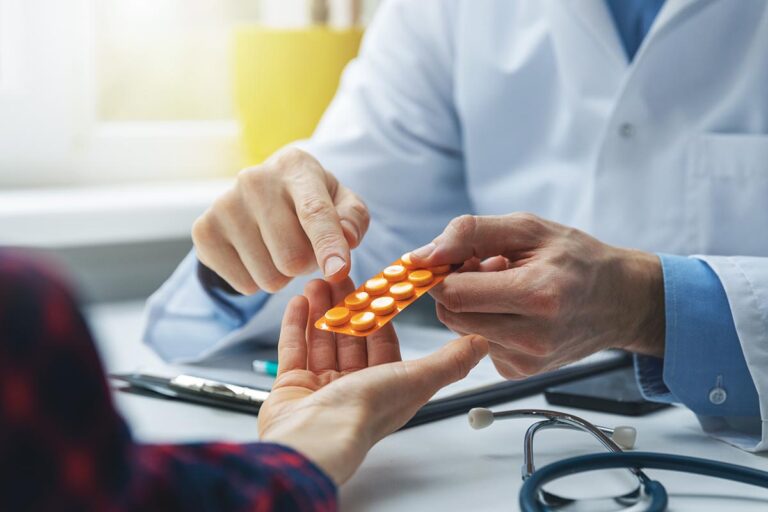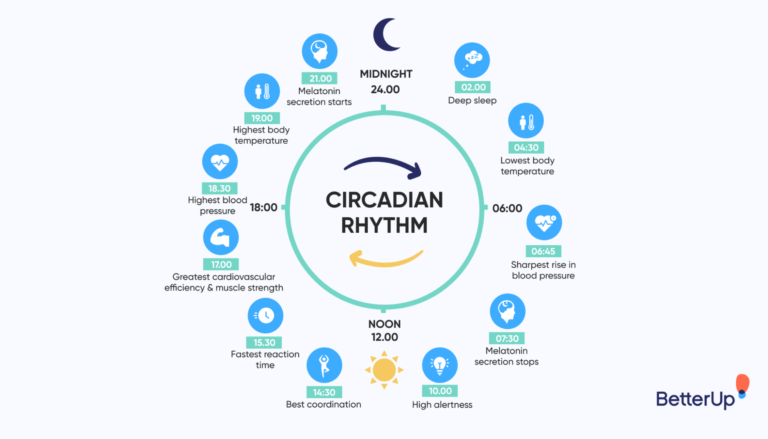Muscle Weakness Erectile Dysfunction: Causes & Solutions

Did you know that nearly 52 percent of men aged 40-70 experience erectile dysfunction? This is from the Massachusetts Male Aging Study. This shows a big health issue affecting millions of men worldwide.
The number of men with erectile dysfunction is expected to grow to about 322 million by 2025. This makes understanding the link between muscle weakness and erectile dysfunction very important.
Muscle weakness erectile dysfunction is a mix of physical and mental factors. Knowing about these connections is key to managing them well. It’s important to tackle these issues early on. This article will explore the causes and solutions for muscle weakness and erectile dysfunction. It aims to help improve health and well-being.
Table of Contents
Understanding Muscle Weakness and Erectile Dysfunction
Muscle weakness means your muscles are not as strong as they should be. This can make everyday activities harder and affect your health. It can happen for many reasons, like health problems, lifestyle choices, or getting older.
Knowing about muscle weakness is key, especially when it affects sex. For men, strong pelvic floor muscles are important for getting and keeping an erection. If these muscles are weak, it can make sex harder and hurt your self-confidence.
Many men in the U.S. face sexual problems. About 20 million men deal with sexual dysfunction. Half of men with diabetes also face sexual issues. This shows how important physical health is for sex.
Here’s a quick look at how muscle weakness and erectile dysfunction are connected:
| Factor | Description |
|---|---|
| Blood Flow | Less blood flow can cause weak and short erections. |
| Hormonal Imbalances | Low testosterone can lower sex drive and cause erectile problems. |
| Lifestyle Choices | Smoking and drinking too much can hurt your ability to get an erection. |
| Pelvic Floor Weakness | Problems with pelvic floor muscles can make erections hard to achieve. |
| Age | Erectile dysfunction gets more common as men get older. |
| Psychological Factors | Issues like anxiety and depression can make sex harder. |
To tackle muscle weakness and erectile dysfunction, we need a full plan. This includes medical checks, changing your lifestyle, and getting mental support. Knowing about these issues is the first step to better health.
What is Erectile Dysfunction?
Erectile dysfunction (ED) is when a man can’t get or keep an erection long enough for sex. This erectile dysfunction definition shows it’s a complex issue. It affects both physical and mental health. Many men face this problem as they get older.
Definition and Overview
Knowing the erectile dysfunction statistics helps us see its big impact. Over half of men between 40 and 70 have some ED. It’s not just for older men; it affects all ages, especially with age and health problems.
Heart disease, diabetes, and being overweight are big contributors. These health issues play a big role in ED.
Prevalence Rates Among Men
The ED demographic data shows a worrying trend. The Massachusetts Male Aging Study found 52% of men have ED. By 2025, 322 million men worldwide will deal with it.
Many men have trouble with erections, due to health issues like high cholesterol. Also, anxiety and depression play a part. There are treatments like medicines and lifestyle changes. For more info, check out this resource.
Link Between Muscle Weakness and Erectile Dysfunction
Understanding how muscle function affects sexual health is key to fixing erectile dysfunction. Muscle strength is vital for getting and keeping erections. Weak muscles, especially in the pelvic area, can really hurt erectile function.
How Muscle Function Affects Sexual Health
Pelvic floor muscles are very important for sexual health. Weak pelvic muscles can block the blood flow needed for erections. On the other hand, muscles that are too tight can squeeze arteries, causing erectile dysfunction. Aging, being overweight, and past surgeries can weaken these muscles.
- Research shows that intact muscle strength correlates with lower odds of decreased sexual function.
- Cardiorespiratory fitness has demonstrated protective effects against erectile dysfunction.
- Physical activity improves vascular health, which is vital for sexual performance.
- Sarcopenia, or the loss of muscle mass, is linked to erectile dysfunction in older men.
A recent study found that 72% of men with myotonic dystrophy type 1 had erectile dysfunction. This shows how important muscle health is. Some erectile problems can get better with exercises that strengthen muscles, like pelvic floor exercises and Kegels.
These exercises not only make muscles stronger but also help with sexual health. This creates a positive cycle for men with erectile dysfunction. Working with a men’s health physiotherapist can help find personalized ways to improve muscle function and regain potency.
Causes of Muscle Weakness
Understanding why muscle weakness happens is key for those dealing with it. Many physical and psychological factors can cause muscle weakness. This affects daily life and overall health.
Physical Conditions Leading to Muscle Weakness
Many physical conditions can lead to muscle weakness. Diseases like neurological disorders, diabetes, heart disease, and obesity weaken muscles. For instance:
- Spinal Cord Injury (SCI): About 294,000 people in the U.S. are affected, with nearly 80% facing sexual issues like erectile dysfunction (ED).
- Multiple Sclerosis (MS): Around 2.5 million people worldwide have MS, with about 70% of men dealing with ED.
- Parkinson’s Disease (PD): This disease affects sexual function, causing ED in 42.6% to 79% of patients.
- Lambert-Eaton Myasthenic Syndrome (LEMS): This condition causes muscle weakness, especially in arms and legs. It can happen with or without lung cancer and often leads to erectile dysfunction as well.
Psychological Factors that Contribute to Muscle Weakness
Psychological factors also play a big role in muscle weakness. Stress, anxiety, and depression can make it hard to want to be active. These feelings can make muscle weakness worse, affecting both muscle health and sexual function.
| Condition | Effect on Muscle Weakness | Impact on Erectile Dysfunction |
|---|---|---|
| Spinal Cord Injury | High incidence of muscle weakness due to nerve damage | ED occurs in almost 80% of patients |
| Multiple Sclerosis | Loss of muscle control and strength | ED affects around 70% of men with the condition |
| Parkinson’s Disease | Neuromuscular decline leads to muscle weakness | ED reported in 42.6% to 79% of patients |
| Lambert-Eaton Myasthenic Syndrome | Weakness in limbs and specific muscle groups | Commonly results in erectile dysfunction |
Muscle Weakness Erectile Dysfunction: Causes & Solutions
Erectile dysfunction (ED) often goes hand in hand with muscle weakness. This makes it tough for many men. Knowing the muscle weakness erectile dysfunction causes helps find ways to treat it. Both physical and mental factors play a role, showing the need for a full approach to managing it.
Many men face ED because their pelvic floor muscles are weak. Strengthening these muscles can help with erections. Effective ED solutions might include Kegel exercises. These exercises boost muscle strength and blood flow.
Lifestyle choices also affect ED. Eating too much red and processed meat can lead to ED. Being overweight and drinking a lot of alcohol also make it harder to have good sex.
There’s a clear link between mental health and muscle weakness in ED. Depression affects about 30 million American men, making them more likely to have ED. Therapy or joining support groups can help improve mental health and sexual function.
The table below summarizes key strategies for addressing muscle weakness and erectile dysfunction:
| Strategy | Description | Benefits |
|---|---|---|
| Strength Training | Kegel exercises to strengthen pelvic muscles | Improved blood flow, enhanced erection quality |
| Lifestyle Adjustments | Adoption of a balanced diet, reduction of alcohol intake | Weight management, reduced ED risk |
| Emotional Support | Therapy for depression and anxiety | Improved mental health, reduced ED symptoms |
| Medical Intervention | Use of oral medications like Viagra or Cialis | Increased sexual satisfaction, higher rates of erection success |
By focusing on muscle strength, lifestyle changes, and seeking professional help, men can tackle ED. Understanding how these factors interact helps find effective solutions. This way, men can regain their sexual health and enhance their overall life quality.
Symptoms of Muscle Weakness
Muscle weakness symptoms can change how we live our daily lives. It’s important to know these signs early. This way, we can avoid bigger problems like erectile dysfunction.
Identifying Symptoms in Daily Life
Some common signs of muscle weakness are:
- Fatigue during usual activities
- Decreased strength in tasks like lifting or climbing stairs
- A lack of endurance that makes it hard to keep going physically
These symptoms can make us less productive and limit our social life. It’s key to tackle these issues early to improve our quality of life.
How Muscle Weakness Affects Men’s Sexual Health
Muscle weakness can deeply affect men’s sexual health muscle weakness effects. It can make it hard to do physical activities needed for sex. This can lead to:
- An increased risk of erectile dysfunction because of less muscle tone and strength
- Negative effects on self-esteem and body image
- Strain on intimate relationships and emotional connections
It’s crucial to address muscle weakness symptoms for both physical and mental health. There are many treatments available, including lifestyle changes. For more on improving erectile function, visit this link.
Diagnosis of Erectile Dysfunction
Understanding erectile dysfunction starts with a proper diagnosis. Early visits are key to figuring out the problem and finding the right solution. Doctors usually start by looking at your medical history and symptoms. They also talk about your health and any conditions that might be linked to the issue.
Initial Consultations and Assessments
At your first visit, doctors might use certain assessment methods to check how bad the erectile dysfunction is. You’ll likely fill out detailed questionnaires and have a quick physical check. This helps doctors find out if there are physical or mental reasons for your problem.
Tests and Evaluations to Identify Underlying Causes
After the first check, you might need to take some ED diagnostic tests. Blood tests are common to check for diabetes, anemia, and hormone imbalances, which can cause erectile dysfunction. Another important test is the penile Doppler ultrasound, which checks blood flow in the penis. This test, lasting about 30 minutes, helps find any blood flow problems.
If no physical issues are found, doctors might look into mental factors. This could lead to talks about therapy for you or your relationship.
For more information on erectile dysfunction, visit this resource.
Common Causes of Erectile Dysfunction
Erectile dysfunction (ED) can come from many sources that affect men’s health. It’s important to know both the physical and mental reasons for ED. These factors can make it hard to perform sexually.
Physical Causes: Vascular, Neurological, and Hormonal Issues
Many physical issues can lead to ED. Heart disease and atherosclerosis can block blood flow to the penis. This makes it hard to get an erection.
Neurological problems, like nerve damage from diabetes or multiple sclerosis, can also cause ED. Hormonal imbalances, especially low testosterone, play a role too.
Men with diabetes are more likely to have ED. Almost half of diabetic men face erectile problems. Aging can make men more prone to these diseases. Some medicines, like blood pressure drugs and antidepressants, can also cause ED.
Psychological Factors: Stress and Anxiety
Psychological issues often mix with physical ones to cause ED. Anxiety, depression, and guilt can lead to stress impotence. The fear of not performing can make anxiety worse.
Health problems like smoking, drinking too much, and being overweight can add to the stress. More than 30 percent of men aged 40–70 face erection issues. Healthy habits like a good diet, exercise, and managing stress can help prevent ED.
Treatment Options for Muscle Weakness and ED
Dealing with muscle weakness linked to erectile dysfunction (ED) needs a mix of treatments. Medications and physical therapy can boost muscle strength and sexual health. It’s important to know about these options to find the best one.
Medications and Their Effectiveness
Men with ED often take sildenafil (Viagra) and tadalafil (Cialis). These drugs help blood flow and work well for most men. Injectable medicines like alprostadil also help, with success rates over 70%.
Other choices include vacuum erection devices and penile implants. These options help improve erectile function and satisfaction.
Physical Therapy and Muscle Strengthening
Physical therapy is key for ED treatment. Doing pelvic floor exercises can strengthen muscles and help with ED. Strength training is also vital for muscle health.
Many men see better erectile function and sexual performance by staying fit and building strength.
Lifestyle Changes for Improving Muscle Strength and ED
Making smart lifestyle changes can boost muscle strength and help with erectile dysfunction (ED). Changing your diet and exercise can improve your health. This can help fight muscle weakness and ED.
Dietary Adjustments and Nutritional Support
Nutrition is key for muscle health and erectile function. Eating a balanced ED diet full of important nutrients is essential for well-being.
- Eat fruits and vegetables for antioxidants.
- Choose whole grains for heart health.
- Go for lean proteins like chicken, fish, and legumes.
- Add healthy fats from olive oil and nuts to fight inflammation.
Foods rich in nitrates, like leafy greens, boost nitric oxide levels. This improves blood flow. The Mediterranean diet, with its focus on whole foods and healthy fats, also helps. It supports nutrition muscle strength and reduces ED symptoms. Studies show that omega-3 fatty acids, found in fatty fish like salmon, help reduce ED damage.
Exercise Routines Focused on Muscle Health
Doing exercise for muscle strength is key to fighting muscle weakness and improving erectile function. Regular exercise boosts heart health and lowers ED risk factors.
- Do strength training exercises at least twice a week.
- Include aerobic activities like brisk walking or cycling to improve circulation.
- Focus on the pelvic area with exercises like Kegels, which help with ED.
A study showed that exercising 160 minutes a week for six months helped with ED linked to obesity and hypertension. A mix of a healthy ED diet and regular exercise can greatly improve muscle strength and ED.
| Dietary Component | Benefit for Muscle Strength and ED |
|---|---|
| Leafy Greens | Boost nitric oxide, enhance circulation |
| Fatty Fish | Reduce inflammation, improve blood flow |
| Whole Grains | Support cardiovascular health |
| Nuts and Legumes | Provide healthy fats, essential proteins |
Natural Remedies for Muscle Weakness
Looking into natural remedies for muscle weakness offers great alternatives to usual treatments. Many herbal supplements and foods can help improve muscle health and overall well-being. Using these natural methods can boost strength and help with erectile dysfunction symptoms.
Herbal Supplements and Their Benefits
Herbal supplements are key natural remedies for muscle weakness. Some top choices include:
- Ginseng – Known for its potential to improve endurance and possibly enhance muscle strength.
- Ginkgo Biloba – May enhance blood flow, which is vital for muscle function.
- Saw Palmetto – This supplement might support hormonal balance, benefiting muscle health.
More research is needed, but these herbal supplements could help with muscle strength and sexual health.
Natural Sources of Key Nutrients
Eating foods rich in nutrients is key to fighting muscle weakness. Certain foods can boost muscle function. Here are some:
| Nutrient | Natural Food Sources | Benefits |
|---|---|---|
| Protein | Lean meat, fish, eggs, legumes | Supports muscle repair and growth |
| Zinc | Nuts, seeds, whole grains | Involved in hormone production and muscle recovery |
| Magnesium | Leafy greens, nuts, whole grains | Critical for muscle function and energy production |
| Omega-3 Fatty Acids | Fatty fish, flaxseeds, walnuts | May reduce muscle inflammation and promote health |
By eating these foods and using herbal supplements, people can improve muscle health. This can help with muscle weakness and its effects on sexual health.
Medical Treatments for Erectile Dysfunction
Erectile dysfunction (ED) can really affect a man’s life. Many look for ways to treat it. Knowing about the different treatments is key to finding the right one.
By age 50, nearly 50% of men face erection problems. Knowing how to treat it is very important.
Understanding Prescription Medications
Medicines for ED help by making blood flow better in the penis. They work by boosting nitric oxide. This relaxes blood vessels.
Common treatments include:
- Sildenafil (Viagra)
- Tadalafil (Cialis)
- Vardenafil (Levitra)
- Avanafil (Stendra)
These drugs help a lot, with 80% of users seeing good results. But, it’s important to talk to a doctor first. They can help avoid side effects.
Alternative Medical Treatments: Vacuum Pumps and Implants
Some men can’t use oral meds or find them don’t work. Vacuum pumps are a good alternative. They work by sucking blood into the penis, helping 80% of users get an erection.
Other options include:
- Alprostadil self-injection
- Urethral suppositories
- Penile implants (malleable or inflatable)
Talking to a doctor is crucial when considering these options. They can help decide what’s best for you. For more on talking about ED, check out this resource.
| Treatment Type | Effectiveness | Notes |
|---|---|---|
| Oral Medications | 80% positive response | Consult for side effects |
| Vacuum Pumps | 80% effectiveness | Requires proper usage |
| Penile Implants | High success rate in severe cases | Invasive procedure |
Impact of Age on Muscle Weakness and ED
Aging affects muscle health a lot. It leads to muscle weakness and erectile dysfunction (ED). As men get older, hormonal changes and health issues get worse. Knowing how aging affects muscle strength helps fight erectile dysfunction.
How Aging Affects Muscle and Sexual Health
The impact of aging on ED is big. Studies show men’s sexual activity drops with age. For example, in the US, sexually active men fell from 83.7% at 57–64 to 38.5% at 75–85 years old. This decline is linked to muscle health and age.
Several factors cause aging effects on ED, including:
- Lower testosterone levels, which reduce libido.
- More chronic conditions like diabetes and heart disease, which harm sexual health.
- Worse vascular health and blood flow, needed for erections.
- Less muscle mass, key for strength and stamina.
Up to 80% of ED cases are due to organic factors, with vascular disease being the top cause. As muscle health worsens, so does the ability to get an erection. The Massachusetts Male Aging Study found a threefold increase in complete ED, from 5% at 40 to 15% at 70. This shows how muscle weakness and ED are linked, especially with age.
People with risk factors like obesity and sleep disorders also face higher ED chances. These conditions often come with aging, making the problem worse.
| Age Group | Probability of Complete ED | Sexually Active Males (%) |
|---|---|---|
| 40 years | 5% | N/A |
| 70 years | 15% | N/A |
| 57-64 years | N/A | 83.7% |
| 75-85 years | N/A | 38.5% |
The drop in muscle strength affects both physical and sexual health. Managing muscle health and age-related changes can help fight ED in older adults.
Psychological Support for Men’s Health
Mental health and erectile dysfunction (ED) are closely linked. Emotional well-being is key to managing ED. Anxiety, depression, and stress can affect sexual function a lot.
Understanding the connection between mental health and ED is important. It helps treat both the mind and body. This approach improves sexual health overall.
Importance of Mental Health in Managing Sexual Dysfunction
ED affects more than just sex. It can hurt a man’s self-esteem and quality of life. Performance anxiety is common among men with ED.
Adding mental health support to ED treatment is crucial. Counseling and support groups help men cope better. They also improve emotional strength.
Therapy for partners can help too. It improves communication and support in tough times.
Therapy Options and Support Resources
There are many ED therapy options. They include physical, emotional, and relational aspects. The American Urological Association suggests a team approach.
This may include psychotherapy and lifestyle changes. These steps can boost self-confidence and reduce ED’s emotional impact. For more on nutrition and ED, check out this resource.
By focusing on both mental and physical health, men can better handle ED.
FAQ
What is muscle weakness, and how does it relate to erectile dysfunction?
What are the main causes of muscle weakness?
How is erectile dysfunction diagnosed?
What treatment options are available for muscle weakness and erectile dysfunction?
Are there lifestyle changes that can improve muscle strength and erectile dysfunction?
What are some common symptoms of muscle weakness?
Can psychological factors contribute to muscle weakness and erectile dysfunction?
What role do medications play in treating erectile dysfunction?
Are there natural remedies for muscle weakness and erectile dysfunction?
How does aging affect muscle health and erectile dysfunction?







